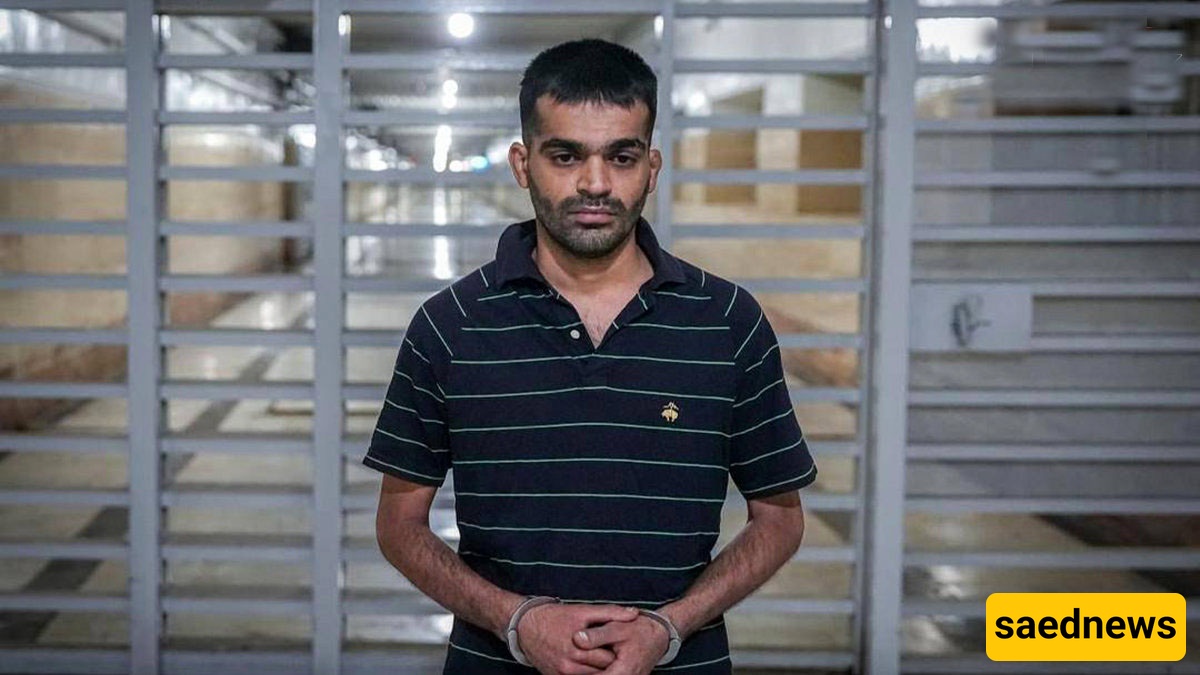SAEDNEWS: Iranian authorities have executed Mohammad-Amin Mahdavi Shayesteh, a man accused of leading a Mossad-linked cyber network and collaborating with the Persian-language media outlet Iran International.

According to Saed News, Iran has carried out the execution of Mohammad-Amin Mahdavi Shayesteh, identified by Iranian intelligence as the ringleader of a sophisticated cyber-espionage network allegedly directed by Israel’s Mossad. The sentence was enforced following a full judicial process and final approval by Iran’s Supreme Court.

Officials say Mahdavi Shayesteh played a central role in coordinating both online psychological operations and field-level intelligence gathering inside Iran. The network operated under direct supervision of Mossad officers—referred to by aliases Manijeh and Reza—and carried out tasks ranging from cyber disinformation to covert surveillance of military personnel and installations.
According to court documents, Mahdavi Shayesteh traveled to a neighboring country where he underwent intensive espionage training under Mossad handlers, posing as an employee of an immigration consultancy. Upon returning, he established and managed a cyber network that allegedly conducted operations against Iranian national security, including:
Spreading fabricated content targeting Iranian armed forces through social platforms
Training recruits in digital anonymity, secure communication, and covert behavior
Operating under direct editorial and logistical support from Iran International, a London-based Persian-language outlet accused by Tehran of functioning as an Israeli soft power proxy
Authorities further claim that the network’s propaganda and media products were regularly republished and amplified by Iran International to bolster anti-government narratives and target military morale.
The intelligence investigation also uncovered what it described as “field operations”, allegedly involving Mahdavi Shayesteh himself. These included:
Surveillance photography of sensitive sites
Delivering threat packages to pre-identified targets
Harassment of specific individuals deemed valuable to Mossad intelligence operations
Sending footage and confidential materials back to handlers via encrypted channels
Iranian intelligence eventually penetrated the network using a combination of cyber-counterintelligence tactics and disinformation feeds, which allegedly exposed Mossad’s broader digital architecture in Iran. Security agencies launched a coordinated crackdown, arresting multiple operatives tied to the cyber ring.
Following trial proceedings, and based on what the judiciary called “clear confessions, hard evidence, and corroborated intelligence,” Mahdavi Shayesteh was sentenced to death on charges of espionage and collaboration with a hostile foreign intelligence service. His execution was carried out early Monday morning.
Iranian officials hailed the operation as a major blow to Israeli covert activities on Iranian soil. However, human rights organizations and media watchdogs are expected to raise serious questions over the trial’s transparency and the broader implications of Iran's ongoing crackdown on dissent framed as national security threats.
As geopolitical tensions with Israel intensify, Tehran has made clear it will not hesitate to use maximum penalties against those it deems agents of foreign destabilization—particularly in the volatile realm of cyber and information warfare.

